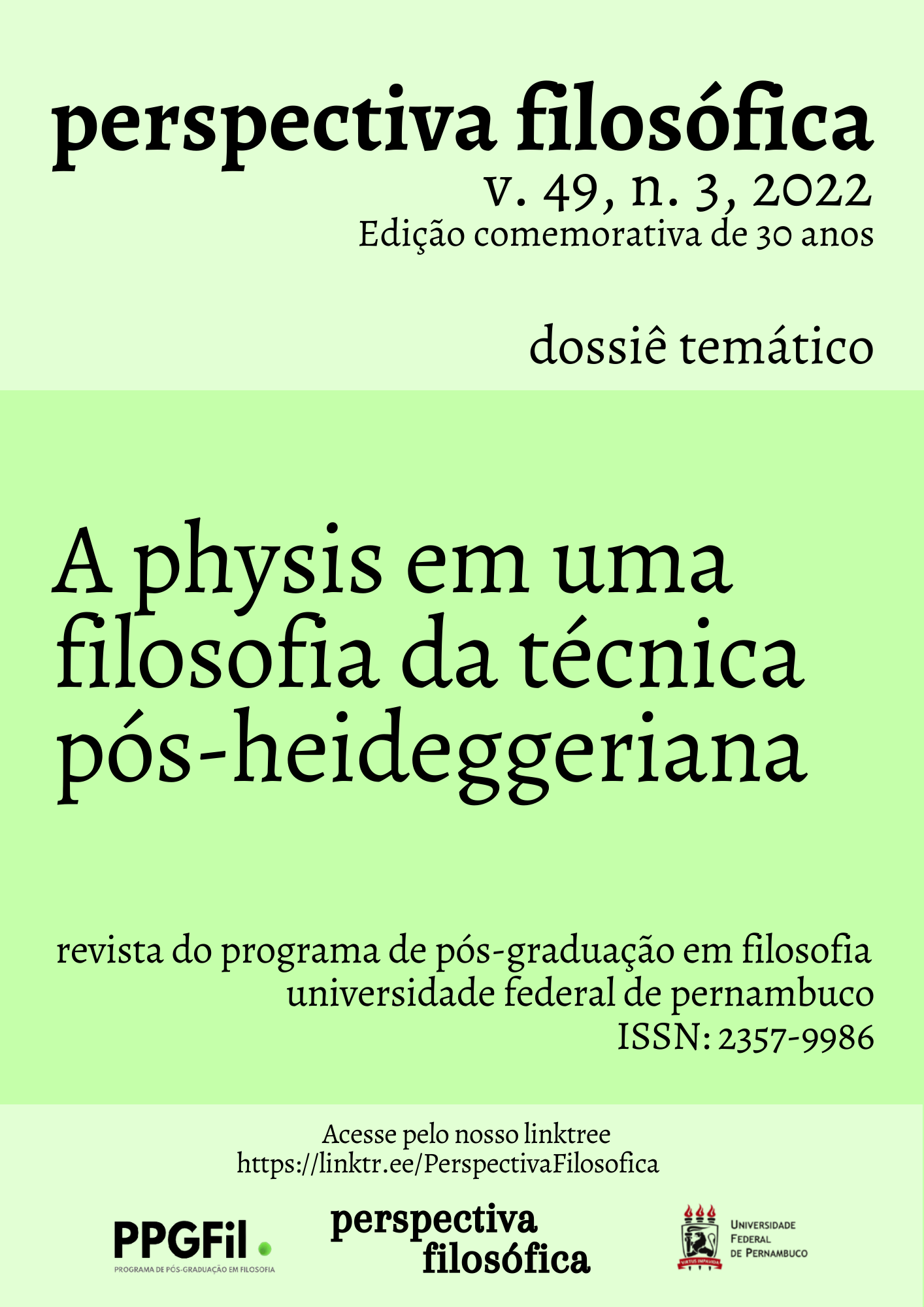Ge-Stell as destination in Martin Heidegger
DOI:
https://doi.org/10.51359/2357-9986.2022.248416Keywords:
Ge-stell, destiny, dispositionAbstract
Ge-stell is described by Martin Heidegger as the essence of modern technology. Contemporarily, it stands quite distinctively from the instrumental and anthropological relationship involved in the daily chores or in the day-today labor with technological objects. As a manifestation of being, Ge-stell offers man another possibility of being-in-the-world. He realizes his technological way of being from the attunement (Stimmung) he can achieve in his new disposition (Befindlichkeit). Characterized by limiting its possibilities to a single way of being - particularly as calculative thinking is inherent to Ge-stell, the technological way of being prevents man from reasoning on what constitutes his self: the openness for ways of being.References
BORNHEIM, Gerd A. Os filósofos pré-socráticos. São Paulo: Cultrix, 1999.
DUARTE, Irene Borges. Arte e técnica em Heidegger. Lisboa: Documenta, 2014.
HAAR, Michel. Heidegger e a essência do homem. Lisboa: Instituto Piaget, 1990.
HEIDEGGER, Martin. Ser e Tempo. Petrópolis: Vozes, 2008.
HEIDEGGER, Martin. Ensaios e conferências. Petrópolis: Vozes, 2002.
HODGE, Joanna. Heidegger e a ética. Lisboa: Instituto Piaget, 1995.
JONAS, Hans. O Princípio Vida – Fundamentos para uma biologia filosófica. Petrópolis: Vozes, 2004.
NUNES, Benedito. História e ontologia (da essência da técnica). In: CASANOVA, Marco Antônio; FURTADO, Rebeca de Melo (org.). Fenomenologia hoje IV – Fenomenologia, ciência e técnica. . Rio de Janeiro: Via Verita, 2013, p. 93-108.
SOMBRA, Laurenio Leite. Temporalidade, acontecimento-apropriador, quadratura: o nexo ontológico entre tempo e espaço em Martin Heidegger. Tese (Doutorado em Filosofia) – Universidade Federal da Bahia, Salvador, 2011.
UNGER, Nancy Mangabeira. O encantamento do humano – ecologia e espiritualidade. São Paulo: Edições Loyola, 2000.
ZARADER, Marlene. Heidegger e as palavras de origem. Lisboa: Instituto Piaget, 1990.
Downloads
Published
Issue
Section
License
A Revista Perspectiva Filosófica orienta seus procedimentos de gestão de artigos conforme as diretrizes básicas formuladas pelo Conselho Nacional de Desenvolvimento Científico e Tecnológico (CNPq). http://www.cnpq.br/web/guest/diretrizesAutores que publicam nesta revista concordam com os seguintes termos:
Os autores mantém os direitos autorais e concedem à revista o direito de primeira publicação, sendo o trabalho simultaneamente licenciado sob https://creativecommons.org/licenses/by/4.0/deed.pt_BR que permite o compartilhamento do trabalho com reconhecimento da autoria e publicação inicial nesta revista.
Os autores têm autorização para assumir contratos adicionais separadamente, para distribuição não-exclusiva da versão do trabalho publicada nesta revista, com reconhecimento de autoria e publicação inicial nesta revista (Consultar http://opcit.eprints.org/oacitation-biblio.html).

Esta revista está licenciada com uma Licença Creative Commons Atribuição 4.0 Internacional.













